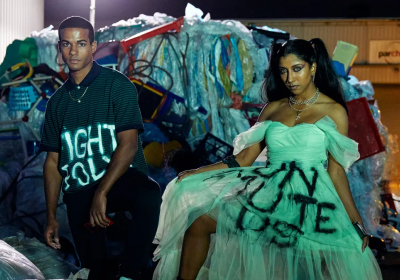Isaac Nellist reviews a new ABC production about the struggle of refugees living on temporary visas, climate change and the importance of community.
Television
Film and TV writers began their strike on May 1 in Hollywood and New York, to demand a living wage and job security amid an explosion in profits in the streaming era, reports Malik Miah.
The star of the new Netflix hit Luke Cage, Mike Colter, said the new show — featuring a bulletproof African-American man sporting a hoodie — highlighted the plight of many young Black people in the United States who have been shot dead by police and the decades-long struggle against such brutality.
I fanatically loved the critically acclaimed Baltimore-based television drama The Wire, which ran for five seasons from 2002-08. It is difficult to even imagine my pop-cultural brain without the presence of Omar Little, Stringer Bell, Bunk and “McNutty”.
When I started doing my sports radio show eight years ago, I scheduled interviews with as many of the actors as I could for no other reason than I wanted to breathe their air. Talking to Michael K Williams about the method of Omar's “long game” while he aggressively chewed on a sandwich will forever remain a career highlight.
Catherine Deveny wasn’t quite sure what she would be in for when she agreed to appear in the second series of SBS’s hit refugee reality TV show, Go Back To Where You Came From.
In 1992, Michael Franti from The Disposable Heroes of Hiphoprisy warned that television was “the drug of the nation, breeding ignorance and feeding radiation”. Almost two decades later, the addiction and the ignorance are accepted as the norm.
Anyone who questions the authenticity of how crime is depicted on television must be an extreme sceptic who spends way too much time online, questions the material reality of the world and thinks The Matrix is a documentary.
Sergio Arriasis is the head of the office of strategic development for Vision Venezuela Television (ViVe), a government-funded channel inaugurated in 2003. Arriasis is in charge of future planning and development of its communications. Coral Wynter, a Green Left Weekly journalist based in Caracas, spoke with Arriasis about the struggle to counter the private corporate media in Venezuela, and create a radical alternative.
How is ViVe different from other TV channels?







